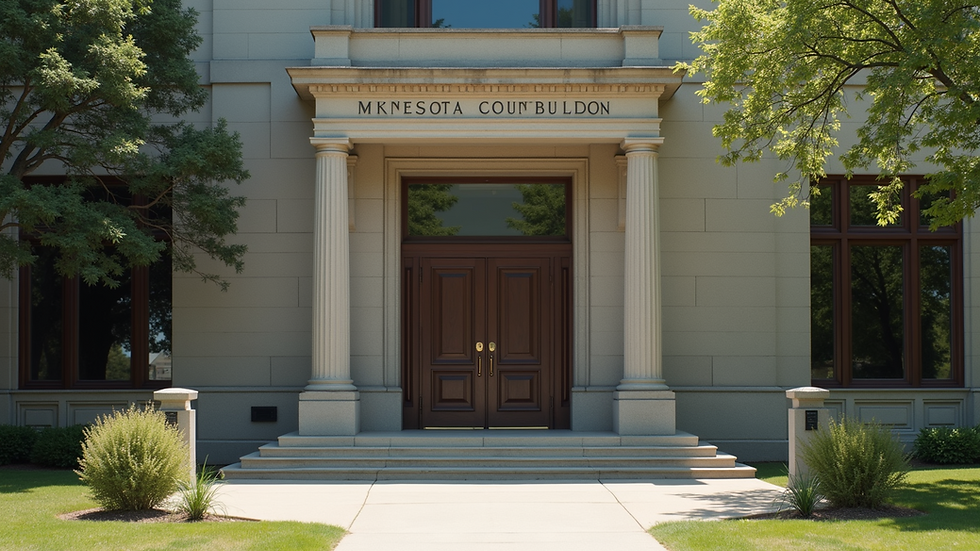Minnesota DWI Degrees Explained
- Bail Bondsman
- Nov 17, 2025
- 4 min read
When it comes to driving while intoxicated (DWI) in Minnesota, understanding the different degrees of offenses can make a significant difference. I’ve found that many people are confused about what each degree means and how it affects their case. So, let’s take a steady, clear look at the topic of DWI degrees in Minnesota. This knowledge can help you or someone you care about navigate the legal process with more confidence.

What Are DWI Degrees in Minnesota?
Minnesota classifies DWI offenses into several degrees, each with its own set of penalties and legal consequences. These degrees are designed to reflect the severity of the offense and any aggravating factors involved. But why does this matter? Because the degree of the charge can influence everything from fines to jail time.
Here’s a quick overview of the main degrees:
First-Degree DWI: The most serious, often involving high blood alcohol content (BAC), prior offenses, or causing injury.
Second-Degree DWI: Serious but less severe than first degree, often a repeat offense or involving a BAC over the legal limit.
Third-Degree DWI: Typically a first offense with a BAC over the legal limit.
Fourth-Degree DWI: The least severe, often a first-time offense with a BAC just over the limit.
Each degree has specific criteria, and understanding these can help you grasp the potential outcomes of a DWI charge.
Breaking Down the Minnesota DWI Degrees
Let’s dive deeper into each degree to see what sets them apart.
First-Degree DWI
This is the most serious charge. It applies if:
Your BAC is 0.16 or higher.
You have previous DWI convictions.
You cause injury or death while driving intoxicated.
You refuse to take a chemical test after being arrested.
Penalties can include significant jail time, hefty fines, and long license suspensions. For example, a first-degree DWI can lead to up to seven years in prison.
Second-Degree DWI
This degree usually applies if:
You have a prior DWI conviction within the last 10 years.
Your BAC is 0.16 or higher but no injury occurred.
You refused a chemical test.
Penalties are still severe but less than first degree, including possible jail time and fines.
Third-Degree DWI
Most first-time offenders fall under this category. It applies if:
Your BAC is over 0.08 but less than 0.16.
No prior DWI convictions.
Penalties often include fines, possible jail time, and license restrictions.
Fourth-Degree DWI
This is the least severe and applies if:
Your BAC is just over 0.08.
No prior convictions.
No injuries or accidents involved.
Penalties usually involve fines and license restrictions but rarely jail time.
Understanding these distinctions is crucial. It helps you know what to expect and how to prepare if you or a loved one faces a DWI charge.

How the Degrees Affect Bail and Legal Process
One question I often hear is, “How do these degrees impact bail?” The answer is: quite a bit. The severity of the charge influences the bail amount and conditions.
For example:
First-degree DWI charges often come with higher bail amounts due to the seriousness of the offense.
Lower degrees might have more affordable bail options.
This is where having a trusted bail bonds partner can make a real difference. A-Affordable Bail Bonds aims to be that reliable resource, helping you secure bail quickly and with less stress.
If you want to learn more about the specific minnesota dwi degrees, this resource breaks down the details clearly.
Practical Tips for Handling a DWI Charge
Facing a DWI charge can be overwhelming. Here are some practical steps to consider:
Stay calm and cooperative during the arrest process.
Contact a bail bonds service immediately to understand your options.
Consult with a qualified attorney who knows Minnesota DWI laws.
Keep detailed records of all court dates and legal documents.
Avoid driving until your license status is clear.
Taking these steps can help you manage the situation more effectively and reduce the stress involved.
Why Understanding DWI Degrees Matters
You might wonder, “Why should I care about the different degrees?” Well, knowing the degree of your charge helps you:
Anticipate the legal consequences.
Prepare financially for fines and bail.
Understand the potential impact on your driving privileges.
Make informed decisions about legal representation.
In short, knowledge is power. The more you understand, the better you can navigate the process.
Supporting You Through Tough Times
At A-Affordable Bail Bonds, the goal is to be more than just a service. We want to be a partner you can trust when things get difficult. Understanding the nuances of DWI degrees is part of that support. We’re here to help you find the best path forward, no matter the degree of the charge.
Remember, everyone deserves a second chance, and having the right information and support can make all the difference.
If you or someone you know is facing a DWI charge, don’t hesitate to reach out for help. Understanding the degrees and knowing your options is the first step toward moving forward with confidence.


